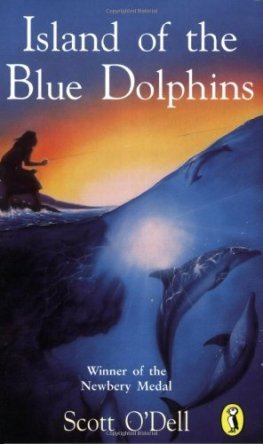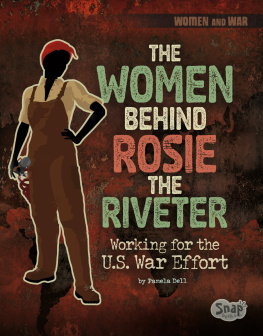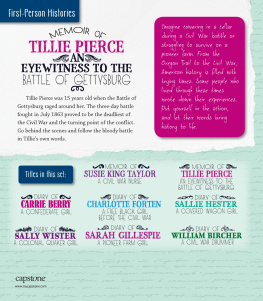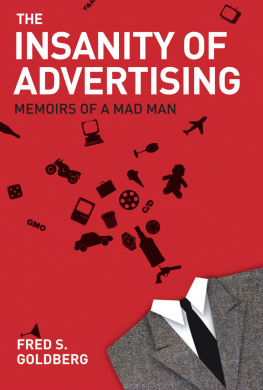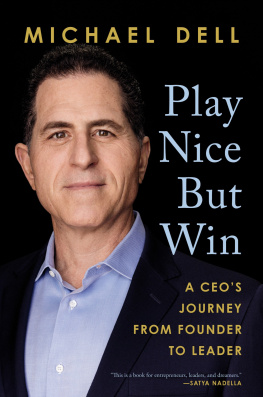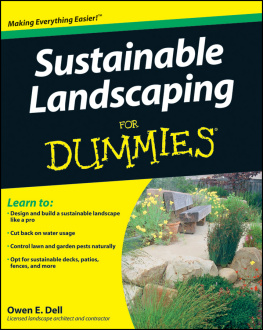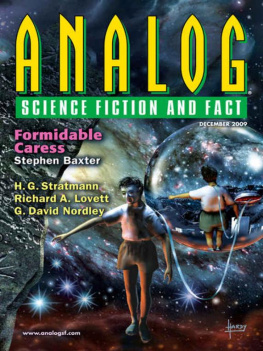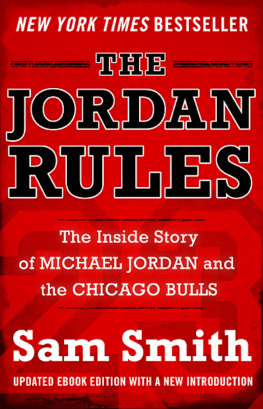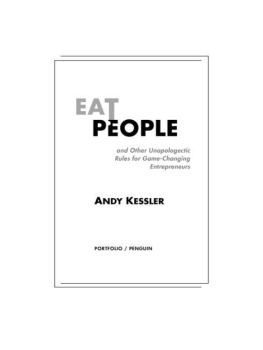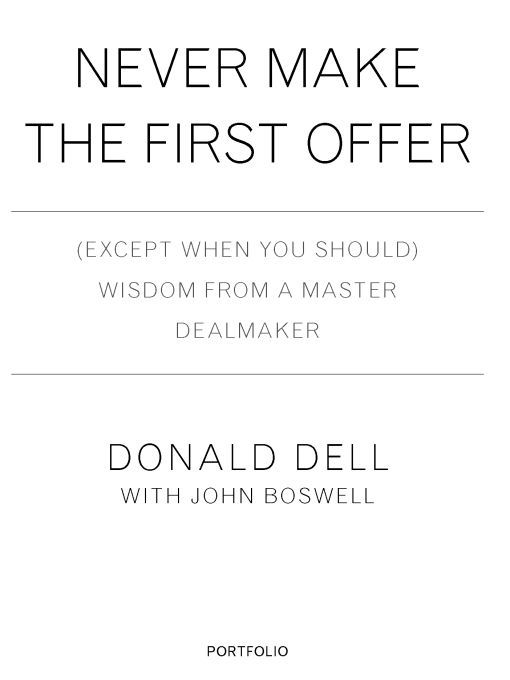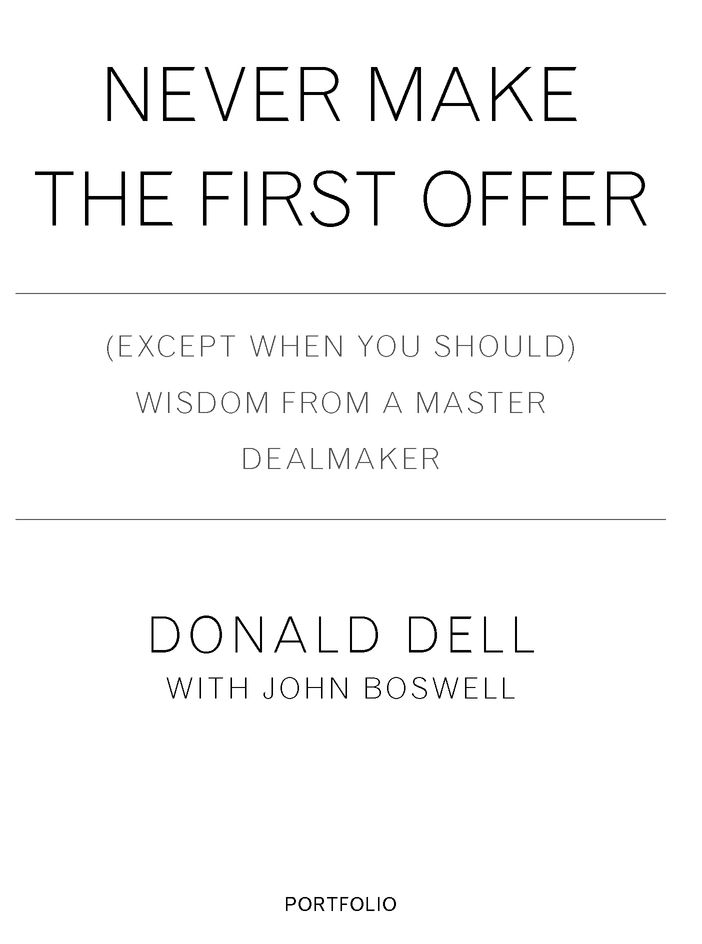Table of Contents
To my love, Carole, my wonderful partner, who inspires me always.
To my exceptional daughters, Alexandra and Kristina, whose talents
and love are the source of our pride and joy.
And to my mother, Margaret (Gaga), who possesses the spirit and
determination I have always tried to emulate.
ACKNOWLEDGMENTS
I would like to acknowledge the enormous help given to me in creating this book. First, my sincere thanks and appreciation to John Boswell for his vision and the nature and content of this book. Without his effort and long hours of work, it would not have been written, because John was the driving force in putting it all together.
I would also like to thank my publisher, Adrian Zackheim of Portfolio, whose support and belief contributed to the books final product, and Courtney Young, whose skillful and caring editing made it a better, more interesting read. Also, my sincere thanks to Emily Winter, Johns assistant, for her many contributions in organizing the material, and my appreciation to my wife, Carole, for her editing and attention to detail.
In particular, I want to thank my colleagues at our new company, BEST, Inc. (Blue Entertainment Sports Television), Jeff Newman, John Tobias, Chris Martin, Sam Duvall, and Blair Giles for their support and encouragement in our daily work.
I am very grateful to Dennis Spencer, my partner for twenty-five years and the Head of BEST TV, for his thoughtful review of every anecdote told in the book and for his friendship.
To my executive assistant, Margaret Van Milder, and administrative assistant, Karen Salter, my thanks for their tireless dedication and skill in keeping it all together.
Finally, my special thanks to my partner and chairman of BEST, Inc., Jonathan Blue, for his hard work, balanced judgment, and sense of fairness, which empowers me to strive for excellence in our business activities.
INTRODUCTION
THE MOMENT OF TRUTH
I had been stuck in a tense negotiation with the chief operating officer and several other executives of a company called AMF, which made Head tennis rackets, for what seemed like hours, when the conference room door suddenly flew open.
I expected the renegotiation of tennis star Arthur Ashes Head racket deal to go smoothly. Head was a ski equipment company that had just made a great amount of money selling the very first graphite tennis racket with Arthurs endorsement. The new material and snowshoe shape were far superior to wooden rackets and sold for more than twice their price. Head now made seven different graphite models, and my client, Arthurwho had his name on the original modelhad been receiving a 5 percent royalty on all of them. But AMF, which had recently bought out Head, said they were finished paying Arthur royalties.
The COO and I had been cordial but firm on our stances: I pushed for Arthurs royalties, and he refused. We were at a complete impasse until that door swung open and the chairman of AMF came storming in. Pierre (Ill refer to him only by his first name) was so angry that I could see the veins popping out of his neck.
Goddamnit! he screamed. Were not paying Ashe any more royalties. This is outrageous. Hes making ten times what Im making, and Im chairman of this company!
The silence was deafening and palpable. Tension filled the room. After a moment of shock, everyone turned to me to see what I would do next.
These are the moments I live for.
This is when the instincts of a true dealmaker really come into play. All the preparation and all the hard work had been done, and now the moment of truth had arrived. It was pass or fail, and the decision was largely in my hands.
I suppose you could say that I am a born dealmaker. In fact, back when I was a color commentator at Wimbledon for NBC, my broadcasting partner, Bud Collins, would tease me by calling me Donald Deal over the air, as in, Donald, its eight a.m. back on the East Coast. So how many deals have you done today? Or, Donald, I guess I cant accuse you of conflict of interest today because in this match you represent both players.
Still, there is nothing in my background to suggest I would go on to represent a whos who in the world of sports including Arthur, Stan Smith, Michael Jordan, Pudge Rodriguez, Patrick Ewing, Jimmy Connors, Andy Roddick, and about three hundred other world-class athletes.
Except for one thing: I have always been supercompetitive. Even as a kid I was ranked number one in U.S. Junior Tennis, and when I got a little older, I managed to make it as far as the quarterfinals of the U.S. Open Championships.
The reason Ive always loved tennis is its competitive ethic. You go out, usually one-on-one, and try to beat the other guys brains out. Then, win or lose, you go up to the net and shake hands.
I suppose the parallel in business is making deals. You do everything you can for your client or for your company. Then, if its going to be a good deal for everyone, you need to be able to go to the net and shake hands.
When I started out, I was captain of the U.S. Davis Cup team just as tennis was about to turn professional. My two best players were Stan Smith and Arthur Ashe. I already had my law degree and was looking forward to working in a big firm and becoming a successful litigator. But then Arthur said, Why dont you represent me? Thats what led me to found ProServ, one of the first sports management companies, and started me on a lifetime of dealmaking.
Everything I know has been the result of on-the-job training, learn as you go. And when it comes to dealmaking, I feel Ive learned a lot. Now, after doing this for forty years, Id like to share everything Ive learned with you. Because what I can pass on is based on real people and real events, I think in many ways it is more valuable than anything youre going to get out of a negotiating class in business school. Among the subjects to be covered are: the keys to great networking, how to win before you even begin, how to develop leverage for yourself, how to take advantage of what others may accidentally give you, and, of course, how to close the deal. I also believe you can learn more from your failures than from your successes, and I have shared plenty of both in this book.
Sports can also be a dirty business, with people going back on their word, lying, cheating, and stealingand thats just the expected thing. Ive included some stories here that will reveal the seamier side of sports as well. It is shocking what people will do when a lot of money is on the line, and Im not someone who is easily shocked.
In addition to representing many prominent people, I have also had the opportunity over the years to turn a number of my business relationships into friendships. Many of these friends, some with familiar names, are or were at the top of their professions. While writing this book it occurred to me that it might be interesting to get their perspective on the dealmaking process as well. So interspersed among my stories (and set off from the rest of the text) are their responses to the question: What do you think is the most important aspect of a deal? I think you will find many of their answers provocative.
Now back to Pierre. When we left off, Pierre had just walked into the room and announced that he was no longer willing to pay royalties to Arthur Ashe that were substantially more than Pierre made, because he was the chairman of the company. One of the obvious rules of negotiating is to keep emotions out of the process. So, once Pierre had given this ultimatum, it was obviously too late for that. My job was to try not to respond in kind and to try to lower the temperature in the room.


